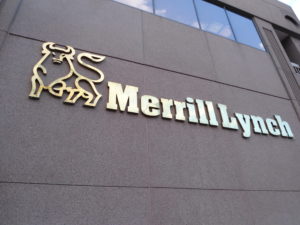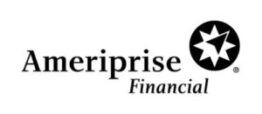
Patrick Thomas Golden of Charlotte North Carolina a stockbroker formerly registered with Merrill Lynch Pierce Fenner Smith has been fined $15,000.00 and suspended for twenty months from associating with any Financial Industry Regulatory Authority (FINRA) member in any capacity based upon consenting to findings that (1) Golden engaged in private securities (2) Golden engaged in unapproved outside business activities and (3) Golden took loans from customers without the firm’s authorization. Letter of Acceptance Waiver and Consent No. 2014043362201 (Jan. 9, 2017).
According to the AWC, between 2009 and October of 2014, during the time that Golden engaged in the violative actions, Merrill Lynch’s policies particularly mandated that stockbrokers had to procure approval from the firm before engaging in private securities transactions. Golden was evidently disallowed from engaging in any transactions away from the firm if it involved a customer who was also a participant in the private securities transaction.
The AWC stated that Golden serviced the account of customer GRI Inc. starting in August of 2010. Apparently, during that year, Golden informed Merrill Lynch that GRI Inc. principal, SM, was providing shares of the company to another party, and that neither that party nor Golden would be making any investment in GRI. Supposedly, the activities involving GRI Inc. were misrepresented by Golden. Golden purportedly utilized his company, GIG, LLC to buy GRI Inc. shares.
Additionally, Golden utilized GIG to engage in another transaction with a firm customer. This time, Golden, on behalf of GIG, paid customer RW $100,000.00 to acquire two hundred twenty-five shares of GFR Inc. from the customer. Golden reportedly utilized RW’s company, RW Holdings Corp., to borrow money so that Golden could pay RW for the GFR Inc. shares. Yet, when it came to notifying Merrill Lynch, Golden failed to inform the firm about significant aspects of the transactions, particularly the fact that he was buying shares of a customer’s company using funds that were loaned to him by the customer.
Evidently, Golden told Merrill Lynch that he planned to buy GFR stock and that there were no customers having any involvement with GFR. FINRA found that Golden failed to inform the firm about GFR being a customer of the firm. Consequently, FINRA found Golden’s failure to inform the firm about his private securities transactions to be violative of FINRA Rule 2010 and NASD Rule 3040(b).
The AWC additionally stated that Golden engaged in outside business activities with MBM, LLC and GIG, both of which were limited liability companies based in North Carolina. GIG was reportedly established by Golden to make private investments and maintain real estate. Golden seemingly engaged in activities involving those companies even though those activities were not within the scope of his employment with Merrill Lynch. Evidently, Golden handled GIG’s accounting transactions and business filings, and managed GIG’s assets. Golden was also involved in the management and operations of MBM, which he created in March of 2014. Golden reportedly failed to inform Merrill Lynch about those companies. Consequently, FINRA found Golden’s unapproved outside business activities as violative of FINRA Rule 3270 and NASD Rule 3030.
Moreover, FINRA stated that Golden was disallowed from lending money to a customer or borrowing from a customer absent the arrangement qualifying under the firm’s written procedures and policies. Golden was additionally required to inform the firm about any loan arrangements with customers and obtain approval from the firm before consummating any loan transactions. FINRA found that Golden borrowed the $100,000.00 from RW for the purchase of GFR shares. Golden also obtained a loan from JB – another Merrill Lynch customer. FINRA found that Golden neither notified his firm nor obtained the firm’s approval for those loans, and the loans were not permissible under the firm’s policies. Consequently, FINRA found that Golden’s unauthorized customer loan arrangements were violative of FINRA Rule 2010 and 3240.
Merrill Lynch discharged Golden supported by allegations that he failed to disclose outside business activities, neglected to address a customer complaint, and failed to be forthcoming to the firm when it investigated him.
FINRA Disclosure reveals that Golden was referenced in a customer initiated investment related written complaint on July 20, 2001 in which the customer sought $1,500,000.00 in damages founded on accusations of the failure to follow the customer’s instructions and the placement of unauthorized unit investment trust or mutual fund transactions in the customer’s account while Golden was associated with former employer, UBS PaineWebber Inc.








